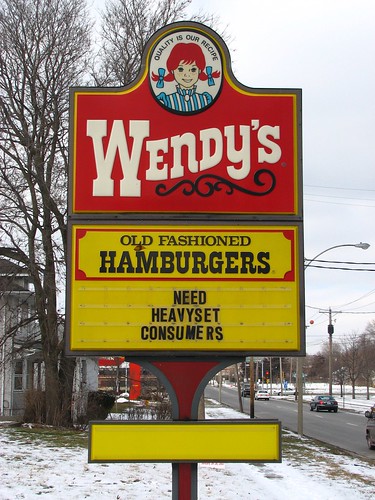Wednesday, November 20, 2013
Let's Stop Talking about What People Want and Need As If They Are Different (and we can tell how)
"Our job is not to give people what they want but what they need."
How many times have you heard this phrase in the context of cultural institutions? For me, the answer is too many. I'm calling this phrase out. I think it's presumptuous, disingenuous, and downright depressing.
It's presumptuous to suggest that we know what people "need" in a cultural context.
I know what my dog needs. He needs two cups of food per day. He wants a million cups of food per day. I think it is completely reasonable for me to give him not what he wants but what he needs.
I know what my baby needs. She needs to nap when she gets cranky, even though she keeps flailing her limbs. I think it is completely reasonable for me to wrap her up and put her to bed--to give her not what she wants but what she needs.
Very, very few museum visitors are in the "dog and baby" category. They are human beings. They are complex. I've spent a lot of time reading and engaging in visitor research, and I don't feel like I have a grasp on what visitors need separate from what they want. Does a mom want a program that includes her kids, or does she need it? Does an artist want an exhibition that stimulates his work in new ways, or does he need it? We spend a lot of time at my institution talking with people about their interests, needs, and abilities, but that doesn't mean that we know what an individual needs on a particular day, a particular visit. I don't know if someone need grounding in core content or exposure to new practices. I don't know if they need to be empowered or provoked. I do know a bit about what they respond to, what they ignore, and what it looks like when they really get turned on by something. But what do they need? I assume they are just as changeable and complex as any person in that regard.
It's really important to be able to articulate what we need to achieve our institutional missions. An organization with an public engagement mission has very different needs than one with a mission that focuses on original research. Some organizations need to focus on 3rd graders. Some need to conduct programs in multiple languages.
We may know what we need to achieve our missions. But that doesn't mean we know what visitors/audiences/humans need.
We ask funders to give general operating support to our organizations because we feel we know best what we need and want to be able to achieve. Why wouldn't we afford our participants the same respect with regard to their needs and wants? (For more on this in the world of poverty, check out this commentary on Give Directly.)
It's disingenuous to use the word "need" to mask our true intentions. In my experience, the "needs" of audiences often look suspiciously like the "wants" of the people speaking.
When I ask what the phrase "don't give people what they want, give them what they need" means, I am often told that we should not be pandering to people's expressed desires but presenting them with objects and experiences that challenge them and open up new ways of seeing the world.
I agree. It is incredibly valuable for cultural institutions to present experiences that might be surprising, unexpected, or outside participants' comfort zones. But I don't typically hear this phrase deployed to argue in favor of a risky program format or an unusual piece of content. I don't hear this phrase accompanied by evidence-based articulation of "needs" of audiences. Instead, I hear this phrase used to defend traditional formats and content in the face of change. I hear "don't give people what they want, give them what I want."
I will always remember when Robin Dowden of the Walker Art Center told me that she knew their teen website was working because she thought it was ugly and impossible to navigate. What teenagers wanted--and needed--was a website with unicorns and sparkly text. That site was not optimized for Robin's experience as an adult. It takes courage to embrace what diverse people want/need, especially when it flies in the face of traditional culture or standards.
It's depressing to imply that culture is not what people "want." Cultural experiences should be a pleasure. They can also be educational, challenging, empowering, political... but they must first be something people want. If we give up on the idea that people should WANT what we have to offer, we give up on the idea that what we have is desirable. Talking about what people need is like talking about going to the dentist. I don't want to be the dentist. I want to offer the most desirable experience possible--even if it's not what people walked in thinking they were seeking.
I'd vastly prefer if we used a phrase like, "Our job is to connect the familiar to the unfamiliar, and in doing so, ignite a passion for how diverse, exciting, and essential art [or history, or science] can be."
Or maybe something as simple as, "We do what we need to do to accomplish our mission. We think it's important. Here's why."
Labels:
visitors
blog comments powered by Disqus

